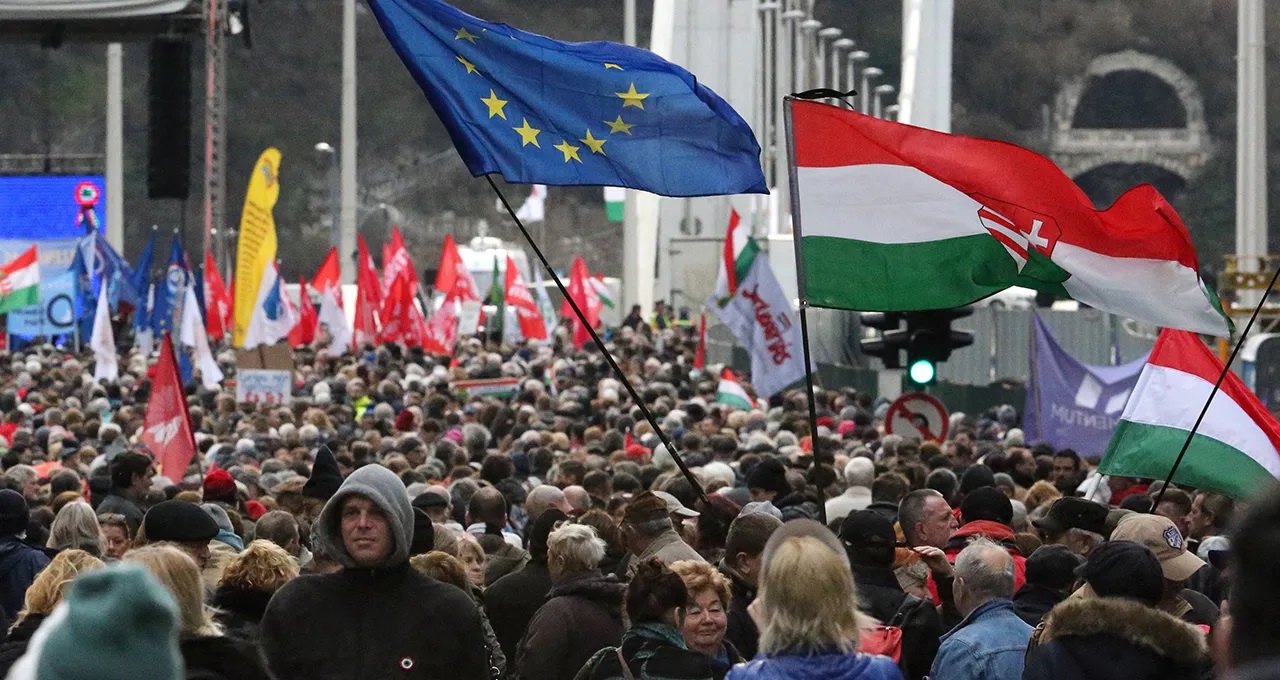- info@glopri.com
- Mon - Sat 8:00 - 18:00. Sunday CLOSE

Introduction
Globalization can be said to have soared the popularity of the far right and populists by highlighting the economic disparities and cultural anxieties.
In the past few decades, a rise in popularity of the right-wing parties in Europe has been witnessed. The Brexit of the UK, and the electoral victories of nationalists in several European countries, the Alternative für Deutschland (AfD) in Germany, the Sweden Democrats Rassemblement National in France, and Fratelli D'Italia in Italy are pieces of evidence for rising far-right politics and populism in Europe. Their politics support nationalism, anti-immigration policies, and anti-globalization rhetoric.
How has global economic integration surged populist rhetoric?
Globalization has posed serious economic challenges for Europe. In 2008 the Global financial crisis, many European states had to confront major contractions in their GDPs. The Eurozone's economy shrank by 4.4% in 2009. European banks, heavily exposed to U.S. subprime mortgages, confronted huge losses. This led to bank failures and government bailouts. The economic hardship and austerity measures contributed to political instability and the rise of populist and anti-EU movements across Europe. Parties like Syriza in Greece and the Five Star Movement in Italy gained popularity during this period. Studies There was also a surge in support for UKIP in the aftermath of the crisis and an opposing perspective towards the EU.
Major trading units have arisen like China, India, and the Asian states which have a comparative advantage in labor and raw material resources. With more internationalized economies and, the spread of trade at massive levels, China’s BRI across many regions of the world has impacted Europe. China continues to increase its significance in the world economy, and labor markets across regions and has intensified competition for European markets and trade. In today’s world Europe is increasingly marginalized. It is technologically backward in key sectors of the global economy for e.g. Chinese electrical vehicles are replacing German ones. According to data regions that were affected by this “China syndrome” showed greater political polarization, hence European states are experiencing the same.
Research by Dippel et al. (2022), revealed that greater exposure of a region to import competition enhanced the popularity of the nationalist parties, especially the AfD a populist party in Germany. The economic hardships have caused people to turn to nationalist parties for security.
Immigration has shifted political dynamics in Europe
In 2015 Europe witnessed one of its biggest waves of migration, as over one million refugees fled to the EU to escape the prolonged conflicts in Syria, Iraq, and Afghanistan. Locals viewed migrants as a threat to their jobs and to their European identity and culture. There is evidence of a growing negative attitude of European youth towards migrants. They emphasized the fiscal costs linked with the influx of refugees and fears that such a huge number of migrants would pose an employment and wage competition for natives.
The migrants were portrayed as a serious menace to the European identity and economy by the populists. Such narratives were given widespread acceptance, as establishment parties supported the populist and right-wing narratives and their efforts to preserve the voters' interest in them. This consequently led to a shift in the right on immigration and asylum policies. Campaigns paint non-European refugees and migrants, especially from the Middle East, as threats to their culture and identity. Social media platforms were used to spread the message to a greater audience. Hence, immigration instilled fears of economic and cultural insecurity among the Europeans which in turn increased the popularity of populist right-wing parties.
Role of the Russia-Ukraine War
The Russia-Ukraine war was a major geopolitical event, and economic insecurity gripped Europe. This became a major blow after the Covid-19 pandemic. Russia was punished with economic sanctions, especially by the West which resulted in significant hikes in prices for many raw and intermediate goods, and inflation in energy and transport sectors throughout Europe. This has altered the dimension of European politics, both among the individual states and at the supranational level. The populist parties exploited the consequences of the war such as inflation, and immigration, to increase their electoral support, and emphasized the domestic socioeconomic issues or cultural and historical legacies, stressing securing national interest and economic security by not taking sides in the conflict. In Germany, AfD’s co-chair, Alice Weidel, remarked that the "main loser" of the conflict was "neither Russia nor Ukraine but Germany", which was confronting the “economic war". Hence, such geopolitical events have rippled deteriorating economic effects all over Europe.
Conclusion
In conclusion, economic, and social issues brought about by globalization have instilled fear and anger among common Europeans. Nationalist sentiments and greater economic integration have marginalized Europe's trade market and increased competition. Likewise, greater mobility and migration across borders have posed threats to their culture and social security. This has led to increased support for nationalist parties which may fabricate unity of the EU and its democratic values in the near future.